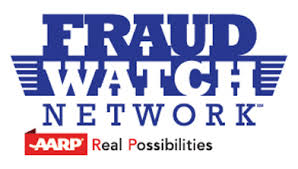AARP Hearing Center

As part of Tax Identity Theft Awareness Week (Jan. 26-30) the AARP Fraud Watch Network is launching an education effort to help Connecticut residents protect against tax scams, and identify the everyday behaviors that could put them at increased risk of ID theft. The national education effort includes a new video and tip sheet to help residents protect themselves and their hard-earned money.
“Fraud targeting taxpayers continues to run rampant nationwide,” says AARP Fraud Watch volunteer Byron Peterson. “Two tax-related scams making headlines in Connecticut that people need to be aware of, especially during tax season, are tax identity theft and the IRS phone scam.”
TAX ID THEFT
In this all-too-common tax scheme, ID thieves electronically file a tax return under someone else’s name to collect their tax refund. All they need is a birthdate and Social Security number, and according to a recent national study released by the AARP Fraud Watch Network, many taxpayers are making it easy by:
• Failing to lock their mailbox. Almost six in ten (59%) Americans do not regularly lock their mailbox, which leaves them open to a criminal stealing bills, tax forms and other documents that contain personal information.
• Leaving valuables exposed: Over half (54%) of Americans 18-49 have left at least one valuable personal item in their car in the last week (e.g., a purse/wallet, paystub, laptop) that could be used to steal their identity.
• Failing to destroy personal information: More than one in five (21%) Americans say they never shred any of the personal documents that could be used to steal their identity.
According to the Federal Trade Commission, Connecticut ranks 19th in ID theft complaints.
“Throwing a pay stub in the trash may seem easier than finding a shredder, but the risk of having your tax refund stolen is just too great,” said AARP’s Peterson. “The Fraud Watch Network is urging all Connecticut residents to file early so you can beat con artists to the punch.”
Tips on how to protect yourself and your family from tax identity theft include:
• Mail tax returns as early in the tax season as possible before the cons beat you to it.
• Don’t give out personal information unless you know who’s asking for it and why they need it.
• Shred personal and financial documents.
• Know your tax preparer.
Residents are encouraged to visit us here or call 1-888-227-7669 for information about AARP Foundation Tax Aide, the nation’s largest free, volunteer-run tax preparation program. Each tax season, Tax Aide helps millions of low- to moderate-income taxpayers – especially those 60 and older – get the credits and deductions they deserve.
IRS IMPOSTER SCAM
An intimidating and sophisticated phone scam, callers claim to be IRS employees, and say you owe taxes. They might also threaten to arrest or deport you if you don’t pay, know all or part of your Social Security number, rig caller ID to make it look like the call is from the IRS, or tell you to put the money on a prepaid debit card and tell them the card number.
According to the FTC, Connecticut was one of the top five states impacted by the IRS phone scam in 2014, in terms of total dollars lost by victims. Nationally, individuals lost more than $14 million to scammers as a result of this ruse.
WHAT YOU NEED TO KNOW
The IRS does NOT:
• call to demand immediate payment about taxes owed without first sending you a notification by mail,
• ask for credit or debit card numbers over the phone,
• ask for payments to be made through a wire transfer or by debt card, pre-paid or otherwise,
• threaten to bring in local police or other law enforcement to arrest you for nonpayment.
If you have any doubts, call the IRS directly at 800-829-1040.
Watch the video:
http://youtu.be/1l7GZCtGQko[/youtube]
For these and other fraud prevention tips, visit the AARP Fraud Watch Network.
For additional help, contact the IRS Identity Protection Specialized Unit at 800-908-4490 and visit www.irs.gov/identitytheft.































































